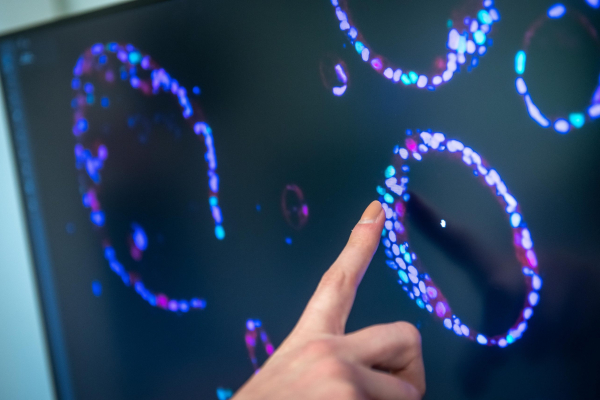
UBC ranks 2nd in Canada for AI publications
The University of British Columbia has been ranked 2nd in Canada for artificial intelligence publications. UBC is thrilled to be recognized by Research Infosource for our leadership in Artificial Intelligence.
The university has also been ranked second overall of Canada's top research universities.
Research Infosource measured university artificial intelligence (AI) publication performance by the number of publications in areas of AI between 2018-2022 at full-service universities.
Reprinted from the Research Infosource website:
At the University of British Columbia (UBC), two initiatives lead the charge: the Centre for AI Decision-making and Action (CAIDA), and AI Methods for Scientific Impact (AIM-SI). Together, these initiatives focus on advancing fundamental AI research and integrating it into disciplines such chemistry, the social sciences, and economics.
"We're building around the core research and teaching in AI to enable scientific collaboration."
Dr. Kevin Leyton-Brown
Director of CAIDA and AIM-SI, University of British Columbia
"We're really thinking about how AI fundamentally impacts and leads to advances in other disciplines," said Dr. Kevin Leyton-Brown, director of CAIDA and AIM-SI.
CAIDA brings together over 120 faculty members across 30 departments to explore the ways AI is transforming other academic disciplines and to advance AI as an emerging discipline, in its own right. It is a grassroots initiative driven by a community of researchers working collaboratively across disciplines to realize the potential of AI.
AIM-SI, organized as a cluster of faculty members within CAIDA, addresses the increasing demand for research, teaching, supervision and collaboration capacity in AI at UBC. Six faculty have been hired to meet this need; they join 20 existing faculty as AIM-SI members. All of these researchers are both AI experts and also committed to making interdisciplinary connections with other disciplines.
"We're building around the core research and teaching in AI to enable scientific collaboration," explained Leyton-Brown, who is also a Canada CIFAR AI Chair.
This approach emphasizes enhancing capabilities in both teaching and application of AI across diverse disciplines, driving innovative solutions to scientific inquiries.
Leyton-Brown sees the recent recognition of Geoffrey Hinton with a Nobel Prize in Physics as a pivotal moment for AI, demonstrating its impact on other sciences. "I think this will shake things up in terms of funding," Leyton-Brown stated.
Looking towards the future, Leyton-Brown expressed an optimistic outlook for Canadian AI research. "Canada is uniquely well-positioned in AI", Leyton-Brown said. "We have a really amazing lead in AI, relative to our size and level of investment."